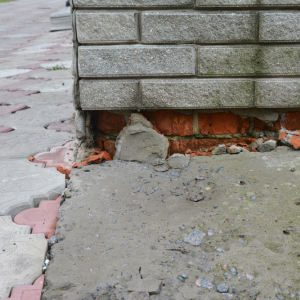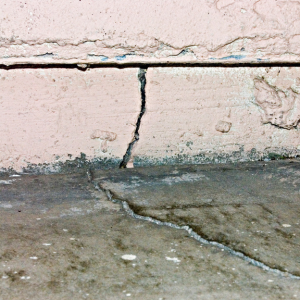
Many Massachusetts homeowners confront unique hurdles when selling a house with foundation problems, especially in Boston. Successful sales require knowledge of the local real estate market and structural issues. This guide explains how foundation issues affect your Boston home’s value and offers strategies for selling despite them. You can handle disclosure, repairs, and pricing in the competitive Massachusetts housing market with the appropriate technique, assuring a seamless transaction and optimal ROI.
Understanding Foundation Issues in Boston
A Boston property with foundation difficulties is hard to sell in the competitive real estate market. Foundation issues affect house value, so sellers must grasp them. Historical construction techniques and soil makeup affect Boston foundations.
Sellers can make better selections by understanding how foundation issues affect structural integrity and buyer interest. The city’s blend of ancient and new architecture requires concrete foundations to resist time and climatic elements, making this understanding crucial.
Common Causes of Foundation Problems
Boston foundation issues have common causes that destroy homes. Clay-rich soil under many Massachusetts properties is a problem. Water absorption by expanding soil presses concrete foundations. Over time, foundation cracks and movement can cause structural issues.

Boston is harsh, and freeze-thaw cycles turn minor foundation faults into huge structural issues. Also, defective drainage systems can go undetected. Undrained water weakens a building’s foundation by increasing moisture. Poorly placed pipes might leak, causing dampness.
Boston’s historic neighborhoods matter. Older, non-modern homes have weaker foundations. Pyrrhotite can degrade concrete and damage older foundations. Pyrrhotite grows or breaks in oxygen and water, threatening a house’s foundation.
Besides natural elements, humans affect the environment. Poor construction and oversight during house construction can misalign or undermine foundations. These problems become more obvious when buildings sink, requiring foundation repairs or alterations. This information helps sellers resolve difficulties before selling.
Understanding their properties’ problems helps sellers anticipate buyer questions, making transactions easier and more transparent. Foundation repair early prevents major concerns and preserves home value. Understanding how foundations affect a home’s longevity helps sellers overcome buyer fear about foundation issues, improving marketability in a competitive market.
Foundation issues don’t have to hold you back. CNC Offers can help by buying your Boston home as-is for cash, so you can skip costly repairs and move forward with peace of mind.
Preparing for Selling a House with Foundation Issues
Selling a house with foundation issues is difficult in Boston’s real estate market. Assessing your property’s foundation concerns and choosing fixes is critical. Understanding these dynamics can greatly affect your selling strategy.
Foundation issues are more noticeable to Massachusetts buyers; thus, preparation is important for a smooth sale. Knowing the consequences of fixing the foundation or selling the house as-is is crucial to making an informed decision.
| Step | Considerations | Impact | Pros & Cons |
|---|---|---|---|
| 1. Identify Foundation Issues | Conduct a professional inspection to assess the extent and severity of foundation problems. | Understanding the problem size is crucial for decision-making and impacts the property’s value and marketability. | Pros: Gains an accurate assessment, potentially uncovers other hidden issues. Cons: Upfront cost for inspection. |
| 2. Evaluate Repair Costs | Obtain estimates from certified contractors for fixing the foundation issues. | Ensure transparency about foundation issues, whether repairs were made or are still needed. | Pros: Provides clarity on financial implications. can adjust the sale price or budget for repairs. Cons: Time-consuming process to gather estimates. |
| 3. Decide on Repairs Before Sale | Consider if repairs should be made prior to listing or offer a reduced price reflecting repairs needed. | Allows for an informed budgeting and pricing strategy for the property sale. | Pros: Repairs can increase marketability and sale price. Cons: Costs and delays in selling if choosing to repair. |
| 4. Full Disclosure to Buyers | Ensure transparency about foundation issues, whether repairs were made or still needed. | Builds trust with potential buyers and complies with legal requirements. | Pros: Legal protection, maintains buyer trust. Cons: May diminish some buyer interest initially. |
| 5. Adjust Pricing Strategy | Set a competitive, accurate asking price reflecting the home’s condition. | Critical for attracting the right buyers and keeping the property sale competitive in the market. | Pros: Transparent pricing can foster quicker sales. Cons: Potentially lower sale price if major repairs are needed. |
This table outlines the strategic approach to dealing with foundation issues when selling a property, providing a clear guide for homeowners navigating Massachusetts’s real estate market.
Assessing the Severity of Foundation Problems
Before selling a house with foundation difficulties, analyze its severity to determine marketability and value. Get a foundation specialist to inspect your property. An expert can find structural or cosmetic concrete foundation flaws and provide fixes.
Understanding foundation issues, such as Massachusetts soil conditions or building code variations, can help determine repairs or maintenance. Determining if your foundation requires minor repairs or replacement is vital. This evaluation affects property value and marketing. Some structural faults deter buyers but attract property investors seeking long-term returns through renovations.
Small foundation repairs may be easy to perform, making the property a safer investment. Structural engineers can also assess foundations. Experts can separate superficial fractures from foundation vibrations and natural settling that need immediate repair. These inspections reassure buyers by being honest about the property’s condition.
With this knowledge, you may set realistic expectations and make sensible financial decisions. Sellers can plan disclosure and negotiations by assessing foundation issues. Understanding your property’s condition and maintenance demands helps you sell it competitively or show investors its potential in Massachusetts’s historic yet lucrative real estate market.
Should You Make Foundation Repairs Before Selling?
Massachusetts homeowners must weigh costs and benefits when repairing foundations before selling. Foundation repair can boost property value and attract buyers, but it can be stressful. Some address foundation issues to speed up negotiations and seal transactions. Selling a house as-is may benefit those with limited funds or time.

Buyer interest must determine foundation repairs in a market with discriminating real estate investors. Foundation repairs before listing can attract more purchasers by removing a major concern. Due to uncertainty and cost, buyers avoid properties that need extensive repairs, making preemptive repairs enticing.
Fixing concrete foundations or other structural faults may boost the sale price, offsetting repair costs. In Massachusetts, house market improvements reflect repair value, increasing property investment returns. These repairs must be financially feasible. Consider whether the expected property value increase justifies the costs. Multiple foundation repair professional quotes let you assess costs and choose.
Buyer talks can be influenced by completed repairs with warranties to ease future concerns. Selling a house as-is offers flexibility and convenience. It may attract buyers interested in custom or renewable homes. Investors may fix foundation faults while buying cheaply.
A competitive asking price that covers repairs can boost interest. Your budget, timeline, and buyer profile determine whether to repair or sell as-is. In Massachusetts’ competitive real estate market, informed decisions will help sell the house quickly, whether through repairs or as-is bids.
Not sure if you should fix foundation issues before selling? In Massachusetts’ competitive market, contact CNC Offers for a fast cash offer on your home as-is, saving you repair costs and stress.
Strategies for Selling a House As-Is with Foundation Issues
Selling a house with foundation difficulties is difficult, especially in a competitive market like Boston. Effective solutions are needed. Homeowners can sell as-is for faster transactions without repairs.
This technique has pros and cons because it involves legal and market knowledge. Understanding the pros and cons of selling as-is and Massachusetts law will help you make a real estate decision.
Selling a House As-Is with Foundation Issues: Pros and Cons
Selling an as-is Massachusetts property with foundation issues offers perks and cons. Foundation-related real estate purchases require understanding this method’s pros and downsides. Sell a house as-is to speed up sales. Investors and custom homebuilders are interested in properties that have not been repaired.
Unlike homes that need extensive foundation work before selling, this speeds closing. Homeowners may profit from selling as-is. Avoiding foundation repairs may save money and time with limited resources. For sellers who prioritize speed over profit, the as-is option can decrease stress and speed up the process.
However, it may lower the sale price. As-is properties are risky and expensive to repair; therefore, buyers anticipate a discount. A house sold as-is may be less marketable. Foundation fault depth may deter buyers, who fear the worst. Massachusetts’ competitive real estate market allows buyers to skip the properties with obvious structural faults.
Sellers without foundation repairs may expect a detailed buyer inquiry. Issue disclosure builds trust and facilitates conversations. Thus, pros and cons must be balanced. Selling as-is may reduce buyer interest and property value, but relieve maintenance quickly.
Understanding these real estate elements sets realistic expectations and prepares you for market learning. Sellers must assess their funds, timetable, and negotiation preparedness before deciding.
Legal Considerations for Selling As-Is with Foundation Issues in Massachusetts
Legal issues must be addressed to sell a Massachusetts residence as-is. Understanding seller and buyer legal obligations and safeguards is vital, especially for foundational issues. Disclosure is crucial legally.
Massachusetts law requires sellers to disclose property defects that may influence value or desirability. Buyers must know about foundation issues to avoid conflicts or fraud. Honest real estate disclosure is lawful and builds confidence. Sellers disclose foundation issues to avoid confusion and bargain transparently.

Use house inspection reports or other reliable assessments to inform purchasers. Massachusetts law doesn’t force sellers to investigate property issues, although honesty may help avoid penalties. Selling foundation-damaged property demands legal expertise.
Buyers may be able to leave or renegotiate if structural issues arise in sales contracts. Sellers need legal guidance to develop state-compliant agreements that safeguard their interests. Deal with Massachusetts-savvy real estate agents to follow rules and best practices.
Selling as-is is beneficial yet risky. Full disclosure spares sellers some duties. Sellers must examine state regulations and market norms that may affect buyer expectations and the transaction. These legal factors may boost homeowner confidence and simplify foundation sales.
To navigate Massachusetts’ legal system, one must know one’s rights and duties. In legal counsel, real estate agents, and personal research, sellers can reduce legal risks and enhance openness by being knowledgeable. This simplifies selling and follows real estate ethics.
Worried about the legal side of selling your Massachusetts home as-is with foundation issues? This cash for houses company in Boston and other cities in Massachusetts can help you sell directly for cash, skip the legal headaches, and close with confidence.
Finding Buyers Interested in Homes with Foundation Problems
Foundation-problem houses are hard to sell in Boston’s competitive real estate market. Target the ideal audience and market smartly to reach buyers. Understanding and communicating the selling points can make a difference.
This section discusses ways to target foundation-positive purchasers and market such properties, making the sale process easier for sellers.
Targeting the Right Buyers for Properties with Foundation Issues
Selling a Massachusetts foundation-damaged property requires the right purchasers. Different real estate buyers pick different home qualities. Flippers, renovators, and investors prefer foundation-problem properties. These purchasers overlook foundation issues for Boston properties’ long-term value or character.
The property’s potential must be highlighted to attract such buyers despite its drawbacks. Boston’s historic homes may benefit from stressing their architecture or history. Highlighting unique features or architecture can shift focus from foundation difficulties to the property’s future.
Investors and developers see foundation-challenged properties as opportunities. Well-informed property improvement buyers are less risk-averse. List with a full foundation condition declaration to attract these buyers. The transparency should include foundation inspection records and engineer assessments.
Transparency as a seller regarding foundation difficulties reduces buyer concerns. Real estate agents who specialize in structurally challenged homes understand their specific issues. They make these homes look like hidden gems rather than difficult real estate.
Sweat equity-seeking first-time homebuyers are typically disregarded. These purchasers will acquire cheap homes and fix them. To attract this group, provide FHA 203(k) loans, which finance the purchase and necessary upgrades. Promotion of such financial products may be enticing.
Offers to pay part of the repair bill or recommend local contractors can be enticing. These value-added incentives can alleviate foundation repair concerns, improving sales. These methods demonstrate a willingness to collaborate with buyers to fix foundation flaws. Finding, recognizing, and targeting these specialist buyer groups can help you sell properties with foundation issues, turning setbacks into opportunities.
Selling a home with foundation issues in Massachusetts doesn’t have to be difficult. Woburn cash buyers and nearby cities in Massachusetts can help you sell fast and stress-free without the hassle of costly repairs.
FAQs:
Can foundation problems affect the value of my property in Boston?
Yes, foundation problems can significantly impact your property’s value as buyers often perceive necessary repairs as a liability, leading to decreased interest and lower offers.
What causes foundation issues in Boston properties?
Foundation issues in Boston often arise from clay-rich soil, freeze-thaw cycles, poor drainage, and historical building methods used in older homes. These factors collectively contribute to structural problems.
Should I repair foundation issues before selling my house in Massachusetts?
Whether to repair foundation issues before selling depends on weighing repair costs against potential returns. Repairs can enhance property value and buyer interest, but selling as-is might appeal to investors looking for renovation opportunities.
What are the legal obligations when selling a house with foundation problems in Massachusetts?
Massachusetts law requires disclosure of material defects, including foundation issues, to potential buyers. Full transparency helps prevent disputes and fosters a transparent negotiation process.
How can I attract buyers for a house with foundation problems?
Target buyers such as investors, flippers, and first-time homeowners are interested in sweat equity. Highlight unique aspects of your property and consider using transparent marketing strategies like detailed listings and open houses.
Do you need to sell your home? Sell quickly, avoid costly repairs, or prefer a hassle-free sale. Call us at (781) 205-9928. We offer fair cash offers, handle all the details, and make the process seamless.
Helpful Boston Blog Articles
- Guide To Selling Your Boston, MA, Home With Mold
- Selling A House With A Mortgage In Boston, MA
- Selling a Probate House in Boston, MA
- Fixing Up a House to Sell in Boston, MA
- How to Do a Quitclaim Deed on a House in Boston, MA
- Does a Seller Pay Closing Costs in Boston MA
- Selling House by Owner Paperwork in Boston MA
- Selling a House with Foundation Problems in Boston, MA
- Can You Put a Lien on a House in Boston, MA

